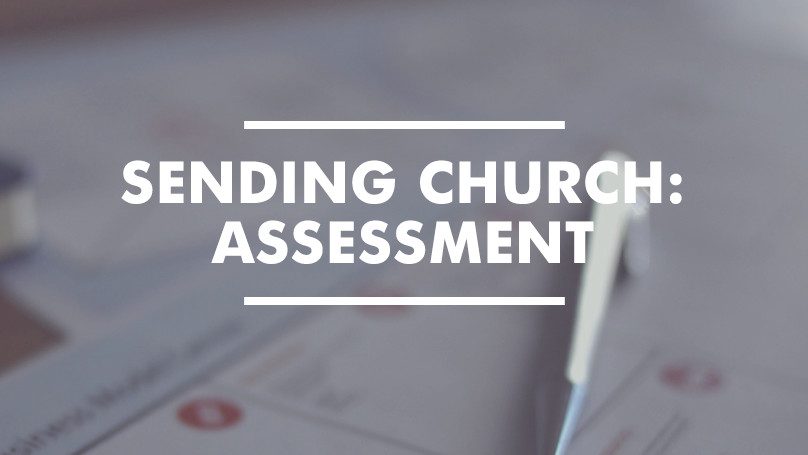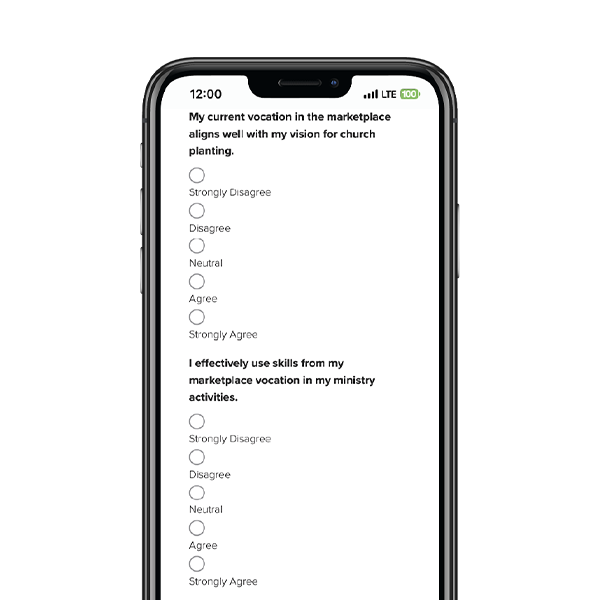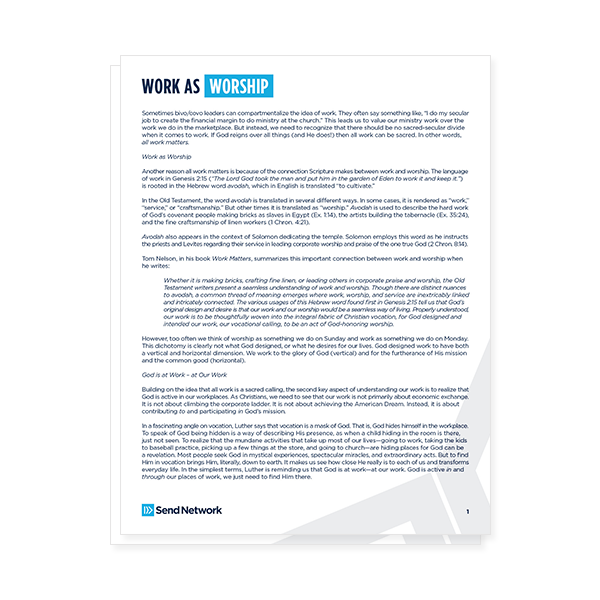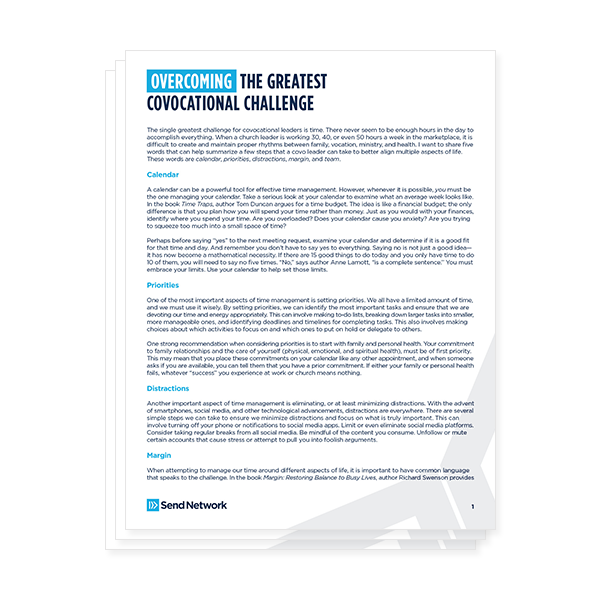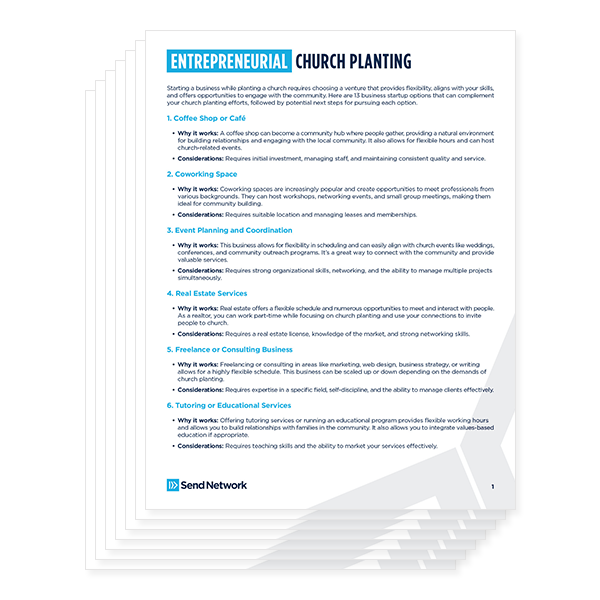Many churches admit they’re hesitant to get involved with church planting because they believe the failure rate is high and, therefore, makes church planting a bad “investment”. For years, I remember hearing that 80% of all church plants fail. But in Viral Churches, Ed Stetzer, and Warren Bird reveal research that indicates 2 years after being started 92% of church plants still existed. After 3 years 81% existed. After 4 years 68% existed.
Church planting is a risk. But the more that sending churches can assess and equip potential planters on the front end the more we’ll see the failure rate decline on the back end. If you have a potential church planter that you’re church is considering sending to plant I would recommend three keys to assessing their call and level of readiness.
#1 – Help him process his calling at an appropriate pace
Many times planters feel a sense of call and immediately rush forward with planting too quickly. It’s not that they don’t have an authentic call to plant; they just haven’t allowed that call to season and develop. A sending church can walk along side a potential planter and help them process the authenticity of their call and their level of readiness to plant.
Knowing what to look for is crucial to helping the planter process his call. At the SEND Network Assessment Retreats, we look for nine traits of a church planter. You can use these traits as a guide to help your potential planter process their calling and level of readiness.
A sending church can walk along side a potential planter and help them process the authenticity of their call and their level of readiness to plant.
1. Calling: Demonstrates ability to clearly convey their salvation experience and a personal calling to church planting that has been validated by multiple mature believers.
2. Spiritual and emotional health: Demonstrates strong self-leadership through a consistent habit of prioritizing spiritual, emotional and physical health.
3. Family Dynamic: Demonstrates the ability to be the spiritual leader in their family and establishes a healthy work-life balance that leads their family to a growing relationship with Christ.
4. Vision: Has captured a compelling, God-inspired and contextualized vision for their life and church plant, which they can articulate effectively and mobilize others towards.
5. Leadership: Demonstrates mature decision making as well as the ability to draw others to themselves and empower and equip them to achieve specific goals.
6. Communication: Demonstrates the ability to study Scripture and communicate its truths with biblical accuracy and cultural relevance that will connect with believers as well as non-believers.
7. Missional Engagement: Demonstrates a bold drive to share their faith with others in order to expose them to the Gospel and ultimately lead them to a personal relationship with Christ.
8. Disciple making: Demonstrates the ability to make disciples who in turn make disciples.
9. Relational Intelligence: Demonstrates personal initiative to make new friendships and welcome others, while also avoiding inappropriate responses to conflict and disagreement.
Use each of these categories as points of discussion to help him process his call to church planting.
Key #2 – Give him Stretch Assignments and Developmental Feedback
The best way you can assess your potential church planter is by watching him in action. And the best way you can watch him in action is by giving him assignments that will help him develop his leadership competencies.
Potential church planters need experience to grow. But we all know that experience alone isn’t good enough. Evaluated experience is what will make the difference in their development. Give your potential planter strategic assignments like: building a team, starting a new ministry or group, preaching, teaching, planning an event, or leading a meeting. Not only does it give you perspective on their potential but will also serve to develop their skills as a lead planter.
To make feedback most helpful keep these practices in mind:
Highlight their strengths. Help them discover what strengths they need to “fan into flame” so they can be most effective in doing what God created them to do. Too much focus on their weaknesses can drive them to discouragement and get them off track in using the gifts God has given them.
Speak the truth in love. Don’t practice false kindness and avoid essential feedback that will help him maximize his potential. Some of his leadership skills will be undeveloped. So he needs someone who loves him enough to be honest and help him grow in essential leadership areas. Point out the critical areas he needs to grow while at the same time demonstrating your confidence in him.
Develop a growth plan. As you observe your potential planter in action help him develop a growth plan that will maximize his potential. Helping him identify his next steps in his development will be one of the best gifts you can give him. Ensure the growth plan exposes him to great books, great leaders and great environments that will expand his thinking.
Potential church planters need experience to grow. But we all know that experience alone isn’t good enough. Evaluated experience is what will make the difference in their development.
Key #3 – Ask him to go through an Official Church Plant assessment
While you may have gotten to know your potential planters personality, passion and strengths it’s still wise to send the planting couple through a church planter assessment. This consists of completing online assessments such as Lifeway’s Church Planter Candidate Assessment or Gateway’s Church Planter Profiles. Either of these online assessments will give you and your candidate a good idea of his level of readiness to plant a new church.
But an online assessment is just the beginning we also recommend that your planter attend an in-person assessment such as the SEND Network Multiply Assessment. At such assessments a team of experienced assessors can give you objective feedback on your candidates call to church planting.
Published October 22, 2015
